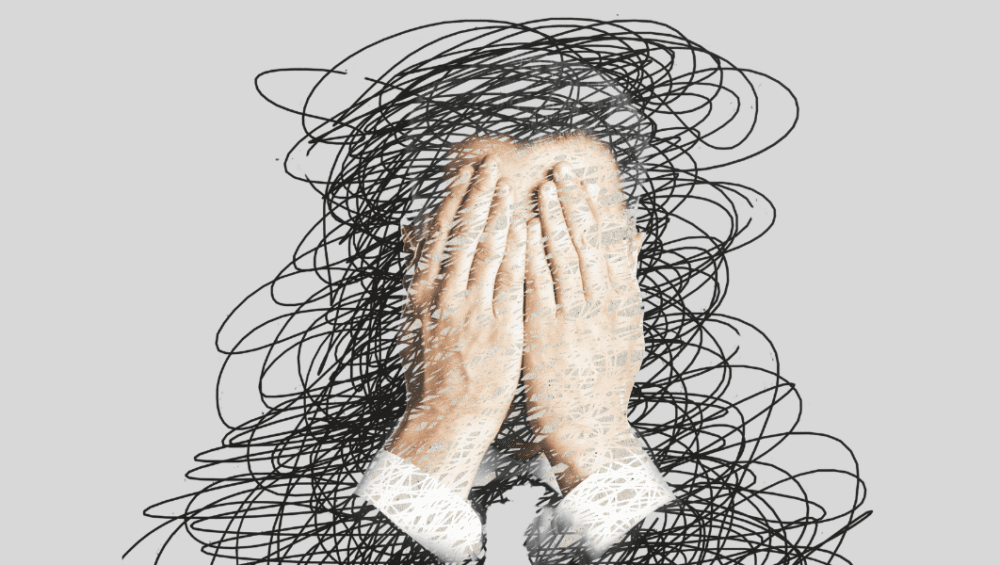Disembodied Voice from the Sky: “Are you aware of stress?”
Everyone: “Yes, very aware!”
Disembodied Voice from the Sky: “Well, are you aware of the impact that the vagus can have on your body’s ability to manage stress?
Everyone: “Uhm, no…?”
We get it. Every cause, idea, ailment, and food has its own holiday or special month. They’re hard to keep track of. Some are frivolous and funny, while others deserve a second look. Since 1992, National Stress Awareness Month has claimed April (we’re sure that tax filing has something to do with this). And it’s a critical reminder of the sweeping impact stress can have on our wellness: Not only can stress affect every major system of the body, [1] but due to its insidious nature, stress is known as the “silent killer.” [2]
Stress awareness may not always feel urgent, but it is always important. At Truvaga, stress relief and management are practices that we think about every single day. Specifically, we focus our efforts on creating solutions that promote vagus nerve health. But before we explain how exactly stress and this critical piece of our nervous system are linked, and encourage you to use National Stress Awareness Month as an opportunity to look at your own vagus nerve health, let’s start with a question.
What is stress?
It’s one of those seemingly softball questions a 5-year-old may ask us, only to find ourselves hemming and hawing through a confusing, discombobulated response.
Despite its ubiquitous nature — who hasn’t experienced stress, aside from maybe those who call a Buddhist monastery home — it can be hard to describe. Part of the reason for the struggle is that there’s not just one type of stress; there are several types of stress: acute stress, chronic stress, eustress, and distress. [3]
Here are examples to help define each:
Acute stress: You’re hiking through the Blue Ridge Mountains, sipping coffee from your tumbler and taking a selfie, when — IT’S A BLACK BEAR HEADING STRAIGHT FOR YOU. This stress is the classic fight-or-flight response. (Note: with black bears, never run. Stand your ground, make yourself look big, and make as much noise as possible.[4] You’re welcome.)
Chronic stress: The combined toll of managing everything in your life that’s tough to bear, from childcare challenges to making ends meet. These are the things that can spin and sprawl inside us to compromise our health and wellness.
Eustress: These are scenarios where stress pays off in positive outcomes. For example, you searched broken branches from family trees and genealogy sites for years to finally find your long-lost sibling —and celebrate with a spontaneous bear hug upon meeting.
Distress: Tough events that cause daily stress, for example, your partner losing their job at a wildlife sanctuary — you guessed it, rehabilitating injured bears — and now you need to work overtime.
How to deal with stress
Stress is real. So is science. The science states that there are a number of ways to reduce unhealthy stress in your life, and we’ll share a few proven techniques:
Breathe in, Breathe Out…
We see it all the time on the big and small screen when a character is experiencing peak stress: deep breathing. Maybe we’ve even had a friend or family recommend it. Here’s the thing: it can work. In a recent series of studies examining about 900 participants, deep breathing (also called “diaphragmatic” breathing) was shown to reduce stress. [5] Listen, we have to breathe regardless of our stress levels, so why not keep deep breathing in our pockets as one possible defense against the dark arts that stress can wield?
Find the Calm in Your Storm
Meditation comes in more shapes and sizes than Crocs. Several variations are backed by science as strong stress relievers. For example, an NCCIH trial found that Transcendental Meditation, in particular, can help manage distress and address a number of other conditions often linked to stress. [6]
Strike a Pose
Are you a Downward Facing Dog fan? Or has the Tree Pose grown on you? The ancient practice of yoga has been validated by a number of studies as a stress reliever. [7]
Tru—what?
All of these proven methods have something in common other than helping to manage stress: they do so specifically by activating the vagus nerve, which is our longest cranial nerve and responsible for shuttling signals between the brain, heart and digestive system. Pretty big job, right? When the vagus nerve is not functioning optimally, we can experience symptoms ranging from poor digestion to an overall decline of physical and mental health.
Don’t worry if this is your first time hearing about the vagus nerve, or you’re just now realizing the critical role it plays for functions ranging from heart rate to regulating mood. You are not alone. At Truvaga, we’re doing more than raising awareness of vagus nerve health. We’re creating user-friendly solutions: handheld vagus nerve stimulators that reduce stress by quickly and gently activating your vagus nerve. In other words, Truvaga balances the nervous system so that you can feel calmer, think clearer, and sleep better. Finally, because we strongly feel that stress management shouldn’t be stressful, our devices use easy, 2-minute sessions to relieve stress. The technology is also drug free, as well as safe, and clinically proven.
You’re aware of stress. Very, very aware. Way too aware. But an abundance of awareness prompts action, and as you peel back the layers of stress causation and management in your life, consider all that your vagus nerve is doing — or not doing — for you. Truvaga is here to help, not just in April, but every day moving forward.
Here’s to a healthy, relaxed, and chilled-out National Stress Awareness Month!
Sources:
[1] https://www.apa.org/topics/stress/body
[2] https://www.psychologytoday.com/us/blog/finding-new-home/202012/the-science-stress
[3] https://www.stress.org/daily-life
[4] https://www.humanesociety.org/resources/what-do-about-black-bears
[5] https://www.nccih.nih.gov/health/stress
[6] https://www.nccih.nih.gov/health/stress
[7] https://www.nccih.nih.gov/health/yoga-what-you-need-to-know






